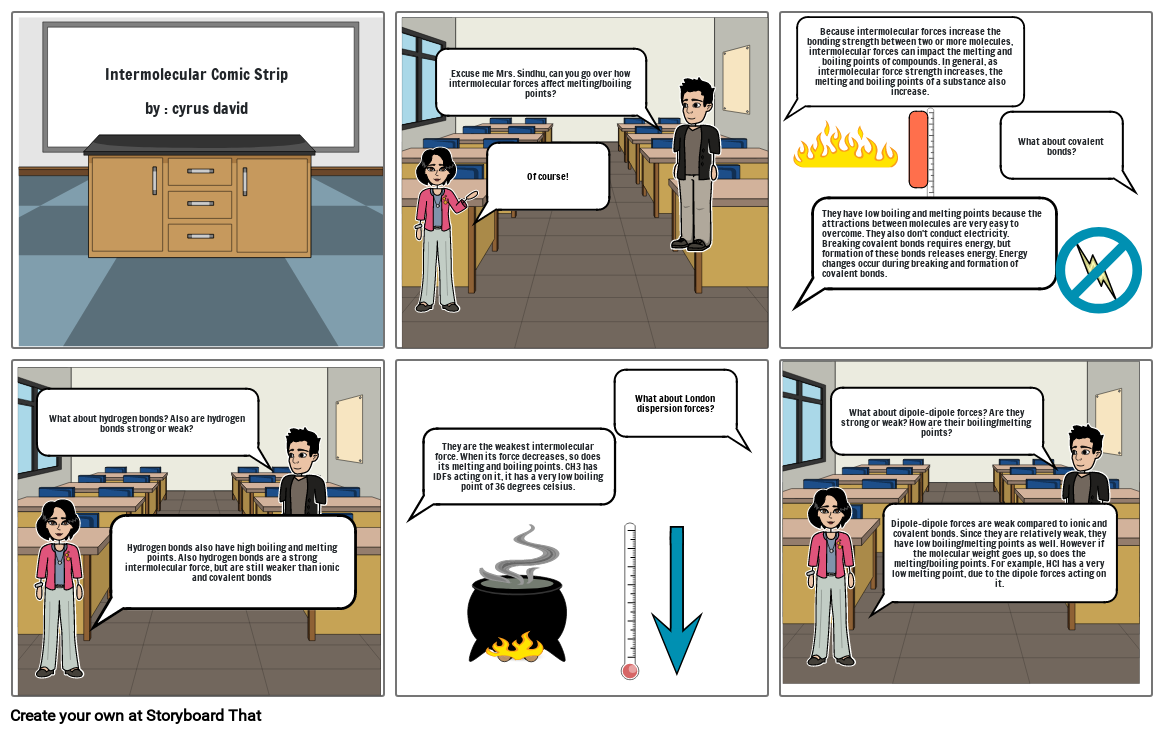Intermolecular Comic

טקסט Storyboard
- Intermolecular Comic Stripby : cyrus david
- Excuse me Mrs. Sindhu, can you go over how intermolecular forces affect melting/boiling points?
- Of course!
- Because intermolecular forces increase the bonding strength between two or more molecules, intermolecular forces can impact the melting and boiling points of compounds. In general, as intermolecular force strength increases, the melting and boiling points of a substance also increase.
- They have low boiling and melting points because the attractions between molecules are very easy to overcome. They also don't conduct electricity. Breaking covalent bonds requires energy, but formation of these bonds releases energy. Energy changes occur during breaking and formation of covalent bonds.
- What about covalent bonds?
- What about hydrogen bonds? Also are hydrogen bonds strong or weak?
- Hydrogen bonds also have high boiling and melting points. Also hydrogen bonds are a strong intermolecular force, but are still weaker than ionic and covalent bonds
- They are the weakest intermolecular force. When its force decreases, so does its melting and boiling points. CH3 has IDFs acting on it, it has a very low boiling point of 36 degrees celsius.
- What about London dispersion forces?
- What about dipole-dipole forces? Are they strong or weak? How are their boiling/melting points?
- Dipole-dipole forces are weak compared to ionic and covalent bonds. Since they are relatively weak, they have low boiling/melting points as well. However if the molecular weight goes up, so does the melting/boiling points. For example, HCl has a very low melting point, due to the dipole forces acting on it.
נוצרו מעל 30 מיליון לוחות סיפור

